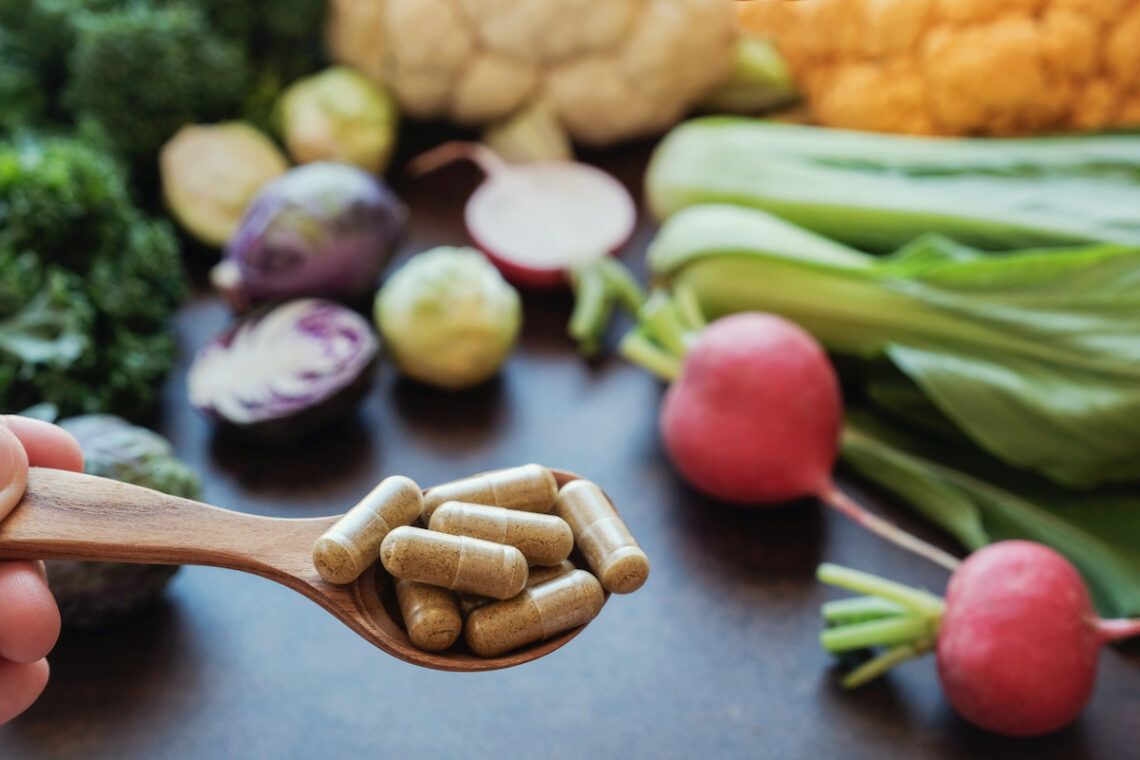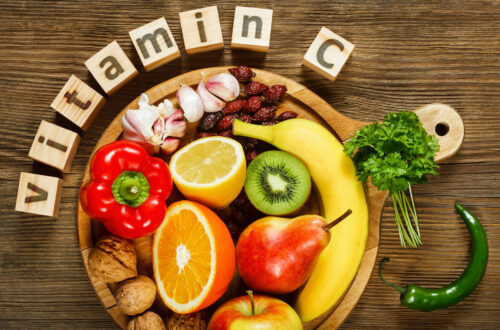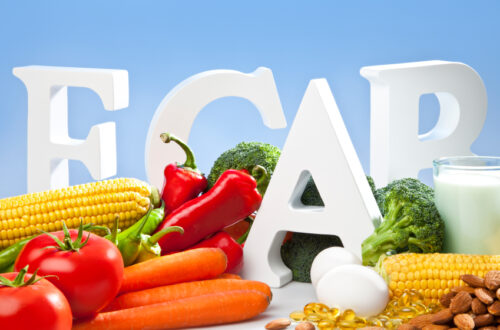Adopting a vegan lifestyle offers numerous benefits, including improved health, ethical considerations, and environmental sustainability. However, vegans often face challenges in obtaining certain essential nutrients that are predominantly found in animal products. This guide explores the benefits of vitamin supplements for vegans, addressing common deficiencies, supplement options, and tips for maintaining optimal health.
Understanding the Vegan Diet
What is a Vegan Diet
A vegan diet excludes all animal products, including meat, dairy, eggs, and honey. Vegans rely on plant-based foods such as fruits, vegetables, grains, nuts, seeds, and legumes. This diet can provide a wide range of nutrients, but certain vitamins and minerals may be lacking.
Common Nutritional Deficiencies in a Vegan Diet
- Vitamin B12
- Essential for red blood cell formation and neurological function.
- Primarily found in animal products.
- Vitamin D
- Crucial for bone health and immune function.
- Naturally synthesized from sunlight; limited in plant sources.
- Omega-3 Fatty Acids
- Important for heart, brain, and eye health.
- Predominantly found in fish and certain algae.
- Iron
- Necessary for oxygen transport in the blood.
- Plant-based iron (non-heme) is less easily absorbed than animal-based iron (heme).
- Calcium
- Vital for bone and teeth health.
- Abundant in dairy products; less so in plant foods.
- Iodine
- Needed for thyroid function.
- Found in seafood and iodized salt.
Benefits of Vitamin Supplements for Vegans
Ensuring Nutrient Adequacy
Vitamin B12 Supplements
Vitamin B12 is critical for preventing anemia and neurological issues. Vegan sources of B12 are limited, making supplementation essential. Regular intake of B12 supplements can prevent deficiencies, ensuring proper energy levels and cognitive function.
Vitamin D Supplements
Vitamin D is synthesized in the skin through sunlight exposure, but geographical location, lifestyle, and skin pigmentation can affect this process. Vegan vitamin D2 and D3 supplements (derived from lichen) are beneficial for maintaining bone health and a robust immune system.
Enhancing Overall Health
Omega-3 Supplements
Vegans can obtain Omega-3 fatty acids from algae-based supplements, providing EPA and DHA essential for cardiovascular, brain, and eye health. These supplements help in reducing inflammation and promoting overall well-being.
Iron Supplements
Iron deficiency anemia is common among vegans due to the lower absorption rate of non-heme iron from plant sources. Iron supplements, along with vitamin C to enhance absorption, can prevent anemia and maintain energy levels.
Supporting Bone Health
Calcium Supplements
Calcium is crucial for maintaining strong bones and teeth. While plant sources like leafy greens, fortified plant milks, and tofu provide calcium, supplements can ensure adequate intake, especially for those with higher requirements.
Vitamin K2 Supplements
Vitamin K2, found in fermented foods, is essential for bone and cardiovascular health. Vegan K2 supplements can aid in proper calcium utilization, promoting bone density and reducing the risk of fractures.
Boosting Immune Function
Zinc Supplements
Zinc supports immune function, wound healing, and DNA synthesis. While plant sources like legumes, seeds, and nuts provide zinc, supplements can help vegans meet their daily requirements and enhance immune response.
Selenium Supplements
Selenium, an antioxidant, is vital for thyroid function and protecting cells from damage. Brazil nuts are a good plant source, but selenium supplements ensure adequate intake, supporting immune health and reducing oxidative stress.
Common FAQs About Vitamin Supplements for Vegans
Why is vitamin B12 important for vegans?
Vitamin B12 is essential for red blood cell formation, neurological function, and DNA synthesis. Since it is primarily found in animal products, vegans need supplements to prevent deficiency-related issues like anemia and cognitive problems.
Can vegans get enough vitamin D without supplements?
While some vegans may get sufficient vitamin D from sunlight exposure, many factors like geographic location, skin pigmentation, and indoor lifestyles can limit synthesis. Vitamin D supplements ensure adequate levels, supporting bone health and immunity.
Are plant-based omega-3 sources sufficient for vegans?
Plant-based sources like flaxseeds and chia seeds provide ALA, but the conversion to EPA and DHA is inefficient. Algae-based omega-3 supplements directly provide EPA and DHA, essential for heart, brain, and eye health.
How can vegans ensure proper iron intake?
Vegans can enhance iron absorption by consuming vitamin C-rich foods with iron-rich plant foods. However, supplements may be necessary for those with higher needs or lower absorption rates to prevent iron deficiency anemia.
What are the best sources of calcium for vegans?
Leafy greens, fortified plant milks, tofu, and almonds are good plant-based calcium sources. However, supplements can help meet daily requirements, especially for those with higher needs or limited dietary intake.
Do vegans need vitamin K2 supplements?
Vitamin K2 is crucial for bone and cardiovascular health, aiding in calcium utilization. Fermented foods provide K2, but vegan supplements ensure adequate intake, promoting bone density and reducing fracture risks.
How can vegans support their immune function?
Vegans can support their immune function by ensuring adequate intake of zinc and selenium through foods like legumes, seeds, nuts, and Brazil nuts. Supplements can help meet daily requirements, especially for those with higher needs.
Are multivitamins beneficial for vegans?
Multivitamins can provide a convenient way for vegans to meet their daily nutrient requirements, especially for vitamins and minerals that may be lacking in a plant-based diet. Choosing a vegan-specific multivitamin ensures appropriate nutrient levels.
What are the benefits of vegan protein supplements
Vegan protein supplements, such as pea, hemp, and soy protein, provide complete amino acid profiles, supporting muscle repair, growth, and overall health. They are beneficial for those with higher protein needs or limited dietary intake.
How often should vegans take vitamin supplements?
The frequency of taking vitamin supplements depends on individual needs, dietary intake, and specific supplements. It’s advisable to follow recommended dosages on supplement labels and consult a healthcare professional for personalized guidance.
Conclusion
Vitamin supplements play a crucial role in ensuring that vegans meet their nutritional needs and maintain optimal health. By addressing common deficiencies and supporting overall well-being, supplements help vegans thrive on a plant-based diet. Understanding the benefits of each supplement and incorporating them into a balanced lifestyle can lead to improved health outcomes and a more fulfilling vegan experience.





